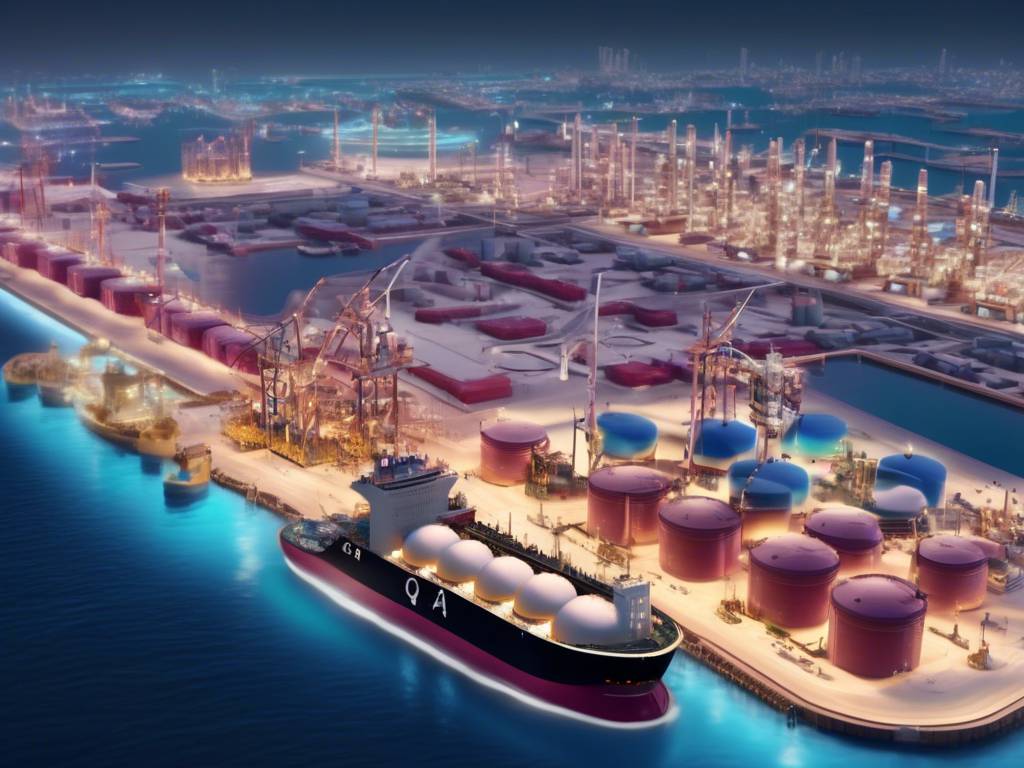Qatar Plans to Address Global LNG Demand After 2030
Qatar’s Energy Minister, Saad Al-Kaabi, recently shared insights into the future of liquefied natural gas (LNG) demand, emphasizing the need for new projects to cater to potential surpluses beyond 2030. Al-Kaabi highlighted the country’s expansion plans, which include increasing LNG production from 77 million tons to 142 million tons. This significant growth is a response to the anticipated rise in global gas demand, with Qatar leading the way in meeting these future requirements. Al-Kaabi also mentioned collaborations with partners like ExxonMobil in Texas, reflecting a collective effort to enhance LNG capabilities globally.
Qatar’s Expansion Strategy and Appraisal Process
Al-Kaabi explained the meticulous evaluation process undertaken by Qatar to determine the feasibility of expanding LNG production beyond initial projections. The steps involved in this appraisal include:
- Initial announcement of increasing production from 77 million tons to 126 million tons
- Continued field appraisal to assess long-term sustainability and production capabilities
- Discovery of further potential, leading to an additional 16 million tons, totaling 142 million tons
The collaborative efforts with partners and ongoing exploration activities also contribute to Qatar’s strategic approach to meet future market demands.
Global LNG Demand and Economic Growth Outlook
Al-Kaabi expressed optimism regarding the future demand for LNG, citing forecasts for increased requirements beyond 2030 and emphasizing the role of economic growth in driving market dynamics. Key points discussed include:
- Anticipated surge in LNG projects globally, including Qatar’s initiatives and partnerships
- Recognition of the evolving stance on LNG and fossil fuels among international bodies like the G-7
- Emphasis on the necessity of continued development in the LNG sector to align with growing demand
Overall, Al-Kaabi’s remarks underline Qatar’s proactive approach to addressing future energy needs through strategic expansions and collaborations.
Implications for the LNG Market Beyond 2030
The evolving landscape of the LNG industry presents several implications for market players and stakeholders, including:
- Increased competition and capacity expansions driven by Qatar’s ambitious growth plans
- Shifts in global energy policies towards supporting LNG projects to meet rising demand
- Opportunities for enhanced exploration activities and potential discoveries to augment LNG capabilities
These developments indicate a paradigm shift towards reinforcing LNG as a crucial component of the future energy mix.
Hot Take: Embracing the Future of LNG
In conclusion, Qatar’s strategic vision and expansion plans underscore the significance of LNG in the global energy landscape post-2030. By recognizing evolving demand patterns and collaborating with industry stakeholders, Qatar aims to establish itself as a key player in fulfilling future energy requirements. The proactive stance taken by Qatar reflects a commitment to innovation and sustainability in the LNG sector, setting a precedent for addressing global energy challenges in the years to come.





 By
By

 By
By

 By
By